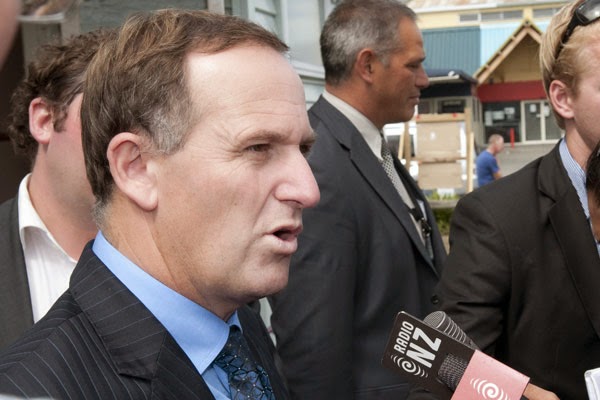Dirty Politics and Cleaning the House
I tried to get a copy of Nicky Hager's latest book Dirty Politics, but Invercargill had sold out by early afternoon and I was put on a waiting list for the next shipment.
Obviously I have yet to read the book but I own and have read most of Hager's earlier five books and they follow a very reliable pattern. Although he stood for the Values Party in his younger years and his books tend to support environmental causes or challenge the politics of the right, his research is impeccable. His last book, Other People's Wars, contained 73 pages of referencing. He is the only New Zealand member of the International Consortium of Investigative journalists and those whom he has exposed in his books have not disproved his facts or even attempted legal action against him.
Most criticisms of Hager's research are around his conclusions. With Dirty Politics, Key, and all others implicated, are not disputing directly what is in the book but are generally attacking the writer and his motivations. It is obvious that Key is worried and his relaxed bravado is missing from recent interviews and Cameron Slater is attempting to shift the attention to Kim Dotcom. Gordon Campbell deals well with the arguments from the right being used to discredit Hager and the book.
New Zealand has always rated well in international rankings for corruption and we have regularly been considered as the least corrupt country in the world. However such rankings are based on perceptions and there is increasing evidence that all is not well with our governance and bureaucracy. New Zealanders have been brought up to believe that we are a fair society and corruption is only something that happens overseas, so we are reluctant to accept otherwise. This perception has been very resilient despite the fact that our financial institutions have been found to be just as corrupt as those offshore and our politicians have often fallen short of basic ethical expectations.
I think most New Zealanders want to believe that we just have the odd rogue politician and many may bend the truth at times, but that is just politics. Generally the worst that happens is a bit of shouting and name calling during question time. Many people actually know MPs on a personal level and most seem approachable, and even helpful. It is hard for us to accept that deliberately organised and orchestrated attack politics, as happens in the US, has been secretly going on under our noses.
Cameron Slater's extraordinary luck to continually find dirt on others was perceived as being his natural skill as a bottom feeding journalist and his brief editorship of Truth fitted that image. He even won an award as New Zealand's foremost blogger. It now appears that it wasn't his journalistic skills that has made him so successful but his ability to self promote and willingness to be a conduit for rightwing propaganda and corporate interests. Slater's ethics are such that he is happy to put his name to almost anything and doesn't give a damn about who he hurts in the process, these are very useful traits for a hired political assassin.
Rightwing bloggers often used to hunt in packs and when dirt was aired on Whale Oil or Kiwiblog the same material would be reproduced on others. Very quickly a scandalous rumour could be widely disseminated on other blogs, which gave the appearance of legitimacy. This was especially so when some of the other bloggers cultivated an air of respectability that attracted a wider audience (not everyone liked claiming they read Truth either). It is clear this book has been a game changer and other, supposedly respectable, blogging sharks are desperately trying to distance themselves from the fallout.
What hasn't been truly appreciated by many of the voting public (because most won't read Hager's books) is that behind the facade and the smiling friendly face of one of New Zealand's most popular, celebrity Prime Ministers was a gang of thugs. Russel Norman was widely criticized for comparing Key with Muldoon because their public personalities appear very different, but actually Key is far worse than his predecessor. There are some other comparisons that I could make to Key's leadership style but I will leave it up to readers to imagine where else in the world do we have leaders who surround themselves with body guards, enjoy the company of movie moguls and presidents and have others employed to assassinate their enemies in a manner that can't be linked back to them?
This is a style of politics we don't need and or want in New Zealand and I am very supportive of the Green Party's attempts to fully investigate the behaviour of this government through various official bodies, including a Royal Commission. I am looking forward to having a clean Green Government installed, but before we can do this we need to clean out the house.




Comments